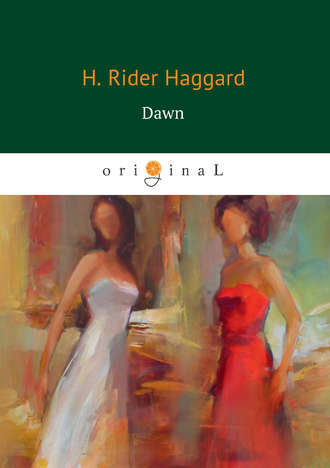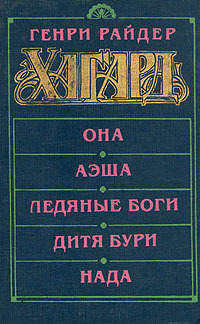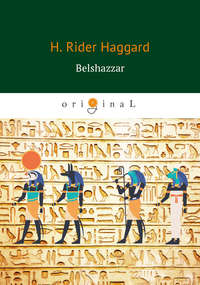
Полная версия
Dawn

H. Rider Haggard
Dawn
"Our natures languish incomplete;Something obtuse in this our starShackles the spirit’s winged feet;But a glory moves us from afar,And we know that we are strong and fleet.”Edmund Ollier."Once more I behold the face of herWhose actions all had the characterOf an inexpressible charm, expressed;Whose movements flowed from a centre of rest,And whose rest was that of a swallow, rifeWith the instinct of reposing life;Whose mirth had a sadness all the whileIt sparkled and laughed, and whose sadness layIn the heaven of such a crystal smileThat you longed to travel the self-same wayTo the brightness of sorrow. For round her breathedA grace like that of the general air,Which softens the sharp extremes of things,And connects by its subtle, invisible stairThe lowest and the highest. She interwreathedHer mortal obscureness with so much lightOf the world unrisen, that angel’s wingsCould hardly have given her greater rightTo float in the winds of the Infinity.”Edmund Ollier.© T8RUGRAM, 2018
© Original, 2018
Chapter I
"You lie; you always were a liar, and you always will be a liar. You told my father how I spent the money.”
"Well, and what if I did? I had to look after myself, I suppose. You forget that I am only here on sufferance, whilst you are the son of the house. It does not matter to you, but he would have turned me out of doors,” whined George.
"Oh! curse your fine words; it’s you who forget, you swab. Ay, it’s you who forget that you asked me to take the money to the gambling-tent, and made me promise that you should have half of what we won, but that I should play for both. What, are you beginning to remember now—is it coming back to you after a whole month? I am going to quicken your memory up presently, I can tell you; I have got a good deal to pay off, I’m thinking. I know what you are at; you want to play cuckoo, to turn ‘Cousin Philip’ out that ‘Cousin George’ may fill the nest. You know the old man’s soft points, and you keep working him up against me. You think that you would like the old place when he’s gone— ay, and I daresay that you will get it before you have done, but I mean to have my penn’orth out of you now, at any rate,” and, brushing the tears of anger that stood in his brown eyes away with the back of his hand, the speaker proceeded to square up to George in a most determined way.
Now Philip, with his broad shoulders and his firm-knit frame, would, even at eighteen, have been no mean antagonist for a full-grown man; much more then did he look formidable to the lankly, overgrown stripling crouching against the corner of the wall that prevented his further retreat.
"Philip, you’re not going to strike me, are you, when you know you are so much stronger?”
"Yes, I am, though; if I can’t match you with my tongue, at any rate I will use my fists. Look out.”
"Oh, Philip, don’t! I’ll tell your father.”
"Tell him! why, of course you will, I know that; but you shall have something to lie about this time,” and he advanced to the attack with a grim determination not pleasant for his cousin to behold.
Finding that there was no escape, George turned upon him with so shrill a curse that it even frightened from his leafy perch in the oak above the tame turtle-dove, intensely preoccupied as he was in cooing to a new-found mate. He did more than curse; he fought like a cornered rat, and with as much chance as the rat with a trained fox-terrier. In a few seconds his head was as snugly tucked away in the chancery of his cousin’s arm as ever any property was in the court of that name, and, to speak truth, it seemed quite possible that, when it emerged from its retreat, it would, like the property, be much dilapidated and extensively bled.
Let us not dwell upon the scene; for George it was a very painful one, so painful that he never quite forgot it. His nose, too, was never so straight again. It was soon over, though to one of the parties time went with unnatural slowness.
"Well, I think you’ve had about enough for once,” soliloquized Philip, as he critically surveyed the writhing mass on the ground before him; and he looked a very handsome lad as he said it.
His curly black hair hung in waving confusion over his forehead, and flung changing lights and shadows into the depths of his brown eyes, whilst his massive and somewhat heavy features were touched into a more active life by the light of that pleasing excitement which animates nine men out of every ten of the Anglo-Saxon race when they are engaged on killing or hurting some other living creature. The face, too, had a certain dignity about it, a little of the dignity of justice; it was the face of one who feels that if his action has been precipitate and severe, it has at any rate been virtuous. The full but clear-cut lips also had their own expression on them, half serious, half comical; humour, contempt, and even pity were blended in it. Altogether Philip Caresfoot’s appearance in the moment of boyish vengeance was pleasing and not uninteresting.
Presently, however, something of the same change passed over his face that we see in the sky when a cloud passes over the sun; the light faded out of it. It was astonishing to note how dull and heavy—ay, more, how bad it made him look all in a breath.
"There will be a pretty business about this,” he murmured, and then, administering a sharp kick to the prostrate and groaning form on the ground before him, he said, "Now, then, get up; I’m not going to touch you again. Perhaps, though, you won’t be in quite such a hurry to tell lies about me another time, though I suppose that one must always expect a certain amount of lying from a half-bred beggar like you. Like mother, like son, you know.”
This last sentence was accompanied by a bitter laugh, and produced a decided effect on the grovelling George, who slowly raised himself upon his hands, and, lifting his head, looked his cousin full in the face.
It was not the ghastly appearance of his mangled and blood-soaked countenance that made Philip recoil so sharply from the sight of his own handiwork—he had fought too often at school to be chicken-hearted about a little bloodshed; and, besides, he knew that his cousin was only knocked about, not really injured—but rather the intense and almost devilish malignity of the expression that hovered on the blurred features and in the half-closed eyes. But no attempt was made by George to translate the look into words, and indeed Philip felt that it was untranslatable. He also felt dimly that the hate and malice with which he was regarded by the individual at his feet was of a more concentrated and enduring character than most men have the power to originate. In the lurid light of that one glance he was able, though he was not very clever, to pierce the darkest recesses of his cousin’s heart, and to see his inmost thought, no longer through a veil, but face to face. And what he saw was sufficient to make the blood leave his ruddy cheek, and to fix his eyes into an expression of fear.
Next second George dropped his head on to the ground again, and began to moan in an ostentatious manner, possibly in order to attract some one whose footsteps could be plainly heard proceeding slowly down a shrubbery-path on the other side of the yard wall. At any rate, that was the effect produced; for next moment, before Philip could think of escape, had he wished to escape, a door in the wall was opened, and a gentleman, pausing on the threshold, surveyed the whole scene, with the assistance of a gold-mounted eye-glass, with some evident surprise and little apparent satisfaction.
The old gentleman, for he was old, made so pretty a picture, framed as he was in the arched doorway, and set off by a natural background of varying shades of green, that his general appearance is worth sketching as he stood. To begin with, he was dressed in the fashion of the commencement of this century, and, as has been said, old, though it was difficult to say how old. Indeed, so vigorous and comparatively youthful was his bearing that he was generally taken to be considerably under seventy, but, as a matter of fact, he was but a few years short of eighty. He was extremely tall, over six feet, and stood upright as a lifeguardsman; indeed, his height and stately carriage would alone have made him a remarkable-looking man, had there been nothing else unusual about him; but, as it happened, his features were as uncommon as his person. They were clear-cut and cast in a noble mould. The nose was large and aquiline, the chin, like his son Philip’s, square and determined; but it was his eyes that gave a painful fascination to his countenance. They were steely blue, and glittered under the pent-house of his thick eyebrows, that, in striking contrast to the snow-white of his hair, were black in hue, as tempered steel glitters in a curtained room. It was those eyes, in conjunction with sundry little peculiarities of temper, that had earned for the old man the title of "Devil Caresfoot,” a sobriquet in which he took peculiar pride. So pleased was he with it, indeed, that he caused it to be engraved in solid oak letters an inch long upon the form of a life-sized and life-like portrait of himself that hung over the staircase in the house.
"I am determined,” he would say to his son, "to be known to my posterity as I was known to my contemporaries. The picture represents my person not inaccurately; from the nickname my descendants will be able to gather what the knaves and fools with whom I lived thought of my character. Ah! boy, I am wearing out; people will soon be staring at that portrait and wondering if it was like me. In a very few years I shall no longer be ‘devil,’ but ‘devilled,’” and he would chuckle at his grim and ill-omened joke.
Philip felt his father’s eyes playing upon him, and shrunk from them. His face had, at the mere thought of the consequences of his chastisement of his cousin, lost the beauty and animation that had clothed it a minute before; now it grew leaden and hard, the good died away from it altogether, and, instead of a young god bright with vengeance, there was nothing but a sullen youth with dull and frightened eyes. To his son, as to most people who came under his influence, "Devil” Caresfoot was a grave reality.
Presently the picture in the doorway opened its mouth and spoke in a singularly measured, gentle voice.
"You will forgive me, Philip, for interrupting your tete-a-tete, but may I ask what is the meaning of this?”
Philip returned no answer.
"Since your cousin is not in a communicative mood, George, perhaps you will inform me why you are lying on your face and groaning in that unpleasant and aggressive manner?”
George lifted his blood-stained face from the stones, and, looking at his uncle, groaned louder than ever.
"May I ask you, Philip, if George has fallen down and hurt himself, or if there has been an—an—altercation between you?”
Here George himself got up and, before Philip could make any reply, addressed himself to his uncle.
"Sir,” he said, "I will answer for Philip; there has been an altercation, and he in the scuffle knocked me down, and I confess,” here he put his hand up to his battered face, "that I am suffering a good deal, but what I want to say is, that I beg you will not blame Philip. He thought that I had wronged him, and, though I am quite innocent, and could easily have cleared myself had he given me a chance, I must admit that appearances are to a certain extent against me—”
"He lies!” broke in Philip, sullenly.
"You will wonder, sir,” went on the blood-stained George, "how I allowed myself to be drawn into such a brutal affair, and one so discreditable to your house. I can only say that I am very sorry,”—which indeed he was —”and that I should never have taken any notice of his words— knowing that he would regret them on reflection—had he not in an unguarded moment allowed himself to taunt me with my birth. Uncle, you know the misfortune of my father’s marriage, and that she was not his equal in birth, but you know too that she was my mother and I love her memory though I never saw her, and I could not bear to hear her spoken of like that, and I struck him. I hope that both you and he will forgive me; I cannot say any more.”
"He lies again, he cannot speak the truth.”
"Philip, will you allow me to point out,” remarked his father in his blandest voice, "that the continued repetition of the very ugly word ‘lie’ is neither narrative nor argument. Perhaps you will be so kind as to tell me your side of the story; you know I always wish to be perfectly impartial.”
"He lied to you this morning about the money. It’s true enough that I gambled away the ten pounds at Roxham fair, instead of paying it into the bank as you told me, but he persuaded me to it, and he was to have shared the profits if we won. I was a blackguard, but he was a bigger blackguard; why should I have all the blame and have that fellow continually shoved down my throat as a saint? And so I thrashed him, and that is all about it.”
"Sir, I am sorry to contradict Philip, but indeed he is in error; the recollection of what took place has escaped him. I could, if necessary, bring forward evidence—Mr. Bellamy—”
"There is no need, George, for you to continue,” and then, fixing his glittering eye on Philip: "it is very melancholy for me, having only one son, to know him to be such a brute, such a bearer of false witness, such an impostor as you are. Do you know that I have just seen Mr. Bellamy, the head clerk at the bank, and inquired if he knew anything of what happened about that ten pounds, and do you know what he told me?”
"No, I don’t, and I don’t want to.”
"But I really must beg your attention: he told me that the day following the fair your cousin George came to the bank with ten pounds, and told him how you had spent the ten pounds I gave you to pay in, and that he brought the money, his own savings, to replace what you had gambled away; and Bellamy added that, under all the circumstances, he did not feel justified in placing it to my credit. What have you to say to that?”
"What have I to say? I have to say that I don’t believe a word of it. If George had meant to do me a good turn he would have paid the money in and said nothing to Bellamy about it. Why won’t you trust me a little more, father? I tell you that you are turning me into a scoundrel. I am being twisted up into a net of lies till I am obliged to lie myself to keep clear of ruin. I know what this sneak is at; he wants to work you into cutting me out of the property which should be mine by right. He knows your weaknesses—”
"My weaknesses, sir—my weaknesses!” thundered his father, striking his gold-headed cane on to the stones; "what do you mean by that?”
"Hush, uncle, he meant nothing,” broke in George.
"Meant nothing! Then for an idle speech it is one that may cost him dear. Look you here, Philip Caresfoot, I know very well that our family has been quite as remarkable for its vices as its virtues, but for the last two hundred and fifty years we have been gentlemen, and you are not a gentleman; we have not been thieves, and you have proved yourself a thief; we have spoken the truth, and you are, what you are so fond of calling your cousin, who is worth two of you, a liar. Now listen. However imperious I may have grown in my old age, I can still respect the man who thwarts me even though I hate him; but I despise the man who deceives me, as I despise you, my dear son Philip— and I tell you this, and I beg you to lay it to heart, that if ever again I find that you have deceived me, by Heaven I will disinherit you in favour of —oh, oh!” and the old man fell back against the grey wall, pressing his hands to his breast and with the cold perspiration starting on to his pallid countenance.
Both the lads sprang forward, but before they reached him he had recovered himself.
"It is nothing,” he said, in his ordinary gentle voice, "a trifling indisposition. I wish you both good morning, and beg you to bear my words in mind.”
When he was fairly gone, George came up to his cousin and laid his hand upon his arm.
"Why do you insist upon quarrelling with me, Philip? it always ends like this, you always get the worst of it.”
But Philip’s only reply was to shake him roughly off, and to vanish through the door towards the lake. George regarded his departing form with a peculiar smile, which was rendered even more peculiar by the distortion of his swollen features.
Chapter II
It is difficult to imagine any study that would prove more fascinating in itself or more instructive in its issues, than the examination of the leading characteristics of individual families as displayed through a series of generations. But it is a subject that from its very nature is more or less unapproachable, since it is but little that we know even of our immediate ancestors. Occasionally in glancing at the cracking squares of canvas, many of which cannot even boast a name, but which alone remain to speak of the real and active life, the joys and griefs, the sins and virtues that centred in the originals of those hard daubs and of ourselves, we may light upon a face that about six generations since was the counterpart of the little boy upon our shoulder, or the daughter standing at our side. In the same way, too, partly through tradition and partly by other means, we are sometimes able to trace in ourselves and in our children the strong development of characteristics that distinguished the race centuries ago.
If local tradition and such records of their individual lives as remained are worthy of any faith, it is beyond a doubt that the Caresfoots of Bratham Abbey had handed down their own hard and peculiar cast of character from father to son unaffected in the main by the continual introduction of alien blood on the side of the mother.
The history of the Caresfoot family had nothing remarkable about it. They had been yeomen at Bratham from time immemorial, perhaps ever since the village had become a geographical fact; but it was on the dissolution of the monasteries that they first became of any importance in the county. Bratham Abbey, which had shared the common fate, was granted by Henry VIII. to a certain courtier, Sir Charles Varry by name. For two years the owner never came near his new possession, but one day he appeared in the village, and riding to the house of Farmer Caresfoot, which was its most respectable tenement, he begged him to show him the Abbey house and the lands attached. It was a dark November afternoon, and by the time the farmer and his wearied guest had crossed the soaked lands and reached the great grey house, the damps and shadows of the night had begun to curtain it and to render its appearance, forsaken as it was, inexpressibly dreary and lonesome.
"Damp here, my friend, is it not?” said Sir Charles with a shudder, looking towards the lake, into which the rain was splashing.
"You are right, it be.”
"And lonely too, now that the old monks have gone.”
"Ay, but they do say that the house be mostly full of the spirits of the dead,” and the yeoman sank his voice to an awed whisper.
Sir Charles crossed himself and muttered, "I can well believe it,” and then, addressing his companion—
"You do not know of any man who would buy an abbey with all its rights and franchises, do you, friend?”
"Not rightly, sir; the land be so poor it hath no heart in it; it doth scarce repay the tillage, and what the house is you may see. The curse of the monks is on it. But still, sir, if you have a mind to be rid of the place, I have a little laid by and a natural love for the land, having been bred on it, and taken the colour of my mind and my stubby growth therefrom, and I will give you—” and this astutest of all the Caresfoots whispered a very small sum into Sir Charles’ ear.
"Your price is very small, good friend, it doth almost vanish into nothing; and methinks the land that reared you cannot be so unkind as you would have me think. The monks did not love bad land, but yet, if thou hast it in the gold, I will take it; it will pay off a debt or two, and I care not for the burden of the land.”
And so Farmer Caresfoot became the lawful owner of Bratham Abbey with its two advowsons, its royal franchises of treasure-trove and deodand, and more than a thousand acres of the best land in Marlshire.
The same astuteness that had enabled this wise progenitor to acquire the estate enabled his descendants to stick tightly to it, and though, like other families, they had at times met with reverses, they never lost their grip of the Abbey property. During the course of the first half of the nineteenth century the land increased largely in value, and its acreage was considerably added to by the father of the present owner, a man of frugal mind, but with the family mania for the collection of all sorts of plate strongly developed. But it was Philip’s father, "Devil Caresfoot,” who had, during his fifty years’ tenure of the property, raised the family to its present opulent condition, firstly, by a strict attention to business and the large accumulations resulting from his practice of always living upon half his income, and secondly, by his marriage late in middle life with Miss Bland, the heiress of the neighbouring Isleworth estates, that stretched over some two thousand acres of land.
This lady, who was Philip’s mother, did not live long to enjoy her wealth and station. Her husband never spoke a rough word to her, and yet it is no exaggeration to say that she died of fear of him. The marriage had been one of convenience, not of affection; indeed poor Anna Bland had secretly admired the curate at Isleworth, and hated Mr. Caresfoot and his glittering eye. But she married him for all that, to feel that till she died that glance was always playing round her like a rapier in the hands of a skilled fencer. And very soon she did die, Mr. Caresfoot receiving her last words and wishes with the same exquisite and unmoved politeness that he had extended to every remark she had made to him in the course of their married life. Having satisfactorily eyed Mrs. Caresfoot off into a better world, her husband gave up all idea of further matrimonial ventures, and set himself to heap up riches. But a little before his wife’s death, and just after his son’s birth, an event had occurred in the family that had disturbed him not a little.
His father had left two sons, himself and a brother, many years his junior. Now this brother was very dear to Mr. Caresfoot; his affection for him was the one weak point in his armour; nor was it rendered any the less sincere, but rather the more touching, by the fact that its object was little better than half-witted. It is therefore easy to imagine his distress and anger when he heard that a woman who had till shortly before been kitchen-maid at the Abbey House, and was now living in the village, had been confined of a son which she fixed upon his brother, whose wife she declared herself to be. Investigation only brought out the truth of the story; his weak-minded brother had been entrapped into a glaring mesalliance.
But Mr. Caresfoot proved himself equal to the occasion. So soon as his "sister-in-law,” as it pleased him to call her sardonically, had sufficiently recovered, he called upon her. What took place at the visit never transpired, but next day Mrs. E. Caresfoot left her native place never to return, the child remaining with the father, or rather with the uncle. That boy was George. At the time when this story opens both his parents were dead: his father from illness resulting from entire failure of brain power, the mother from drink.
Whether it was that he considered the circumstance of the lad’s birth entitled him to peculiar consideration, or that he transferred to him the affection he bore his father, the result was that his nephew was quite as dear if not even dearer to Mr. Caresfoot than his own son. Not, however, that he allowed his preference to be apparent, save in the negative way that he was blind to faults in George that he was sufficiently quick to note in Philip. To observers this partiality seemed the more strange when they thought upon Philip’s bonny face and form, and then noted how the weak-brained father and coarse-blooded mother had left their mark in George’s thick lips, small, restless eyes, pallid complexion, and loose-jointed form.









